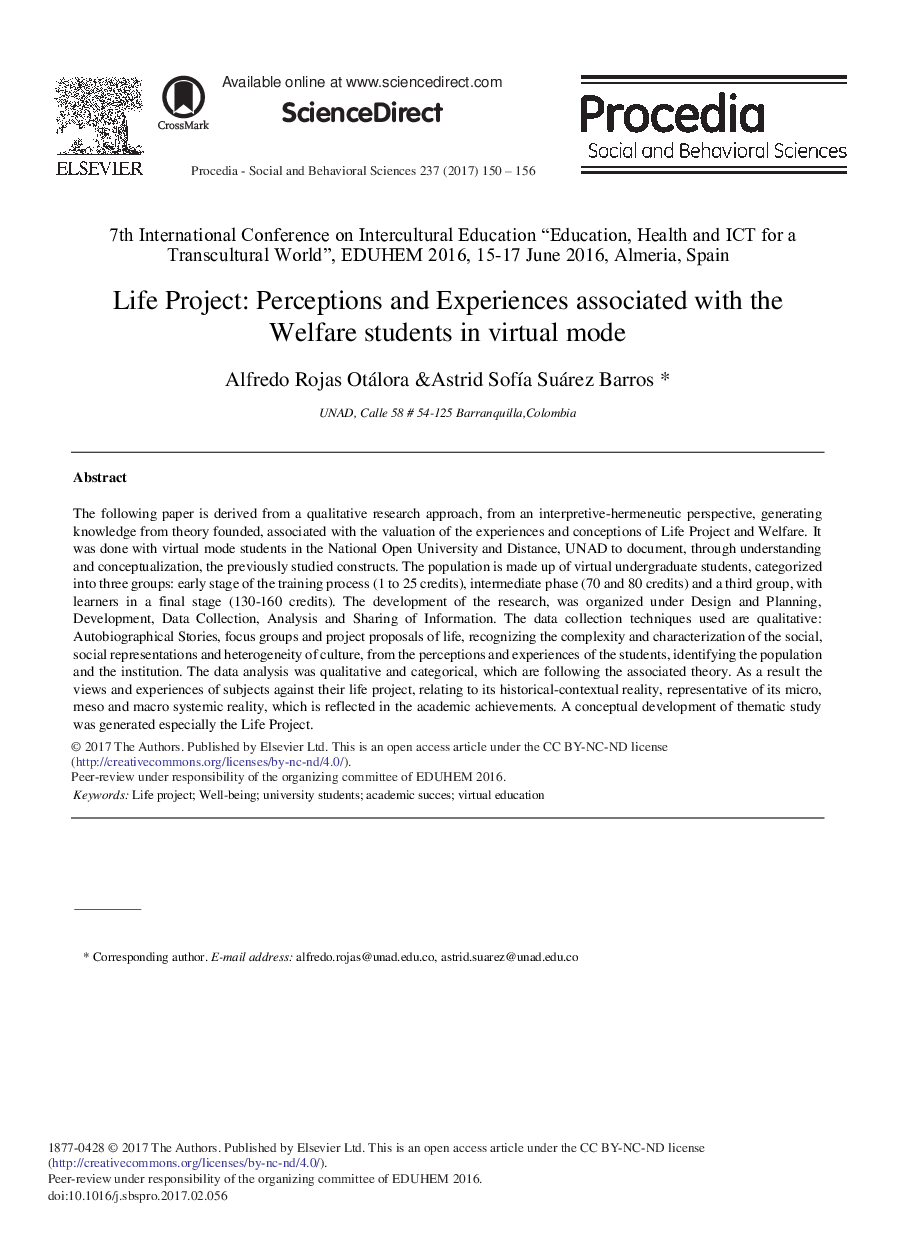| Article ID | Journal | Published Year | Pages | File Type |
|---|---|---|---|---|
| 5125718 | Procedia - Social and Behavioral Sciences | 2017 | 7 Pages |
The following paper is derived from a qualitative research approach, from an interpretive-hermeneutic perspective, generating knowledge from theory founded, associated with the valuation of the experiences and conceptions of Life Project and Welfare. It was done with virtual mode students in the National Open University and Distance, UNAD to document, through understanding and conceptualization, the previously studied constructs. The population is made up of virtual undergraduate students, categorized into three groups: early stage of the training process (1 to 25 credits), intermediate phase (70 and 80 credits) and a third group, with learners in a final stage (130-160 credits). The development of the research, was organized under Design and Planning, Development, Data Collection, Analysis and Sharing of Information. The data collection techniques used are qualitative: Autobiographical Stories, focus groups and project proposals of life, recognizing the complexity and characterization of the social, social representations and heterogeneity of culture, from the perceptions and experiences of the students, identifying the population and the institution. The data analysis was qualitative and categorical, which are following the associated theory. As a result the views and experiences of subjects against their life project, relating to its historical-contextual reality, representative of its micro, meso and macro systemic reality, which is reflected in the academic achievements. A conceptual development of thematic study was generated especially the Life Project.
